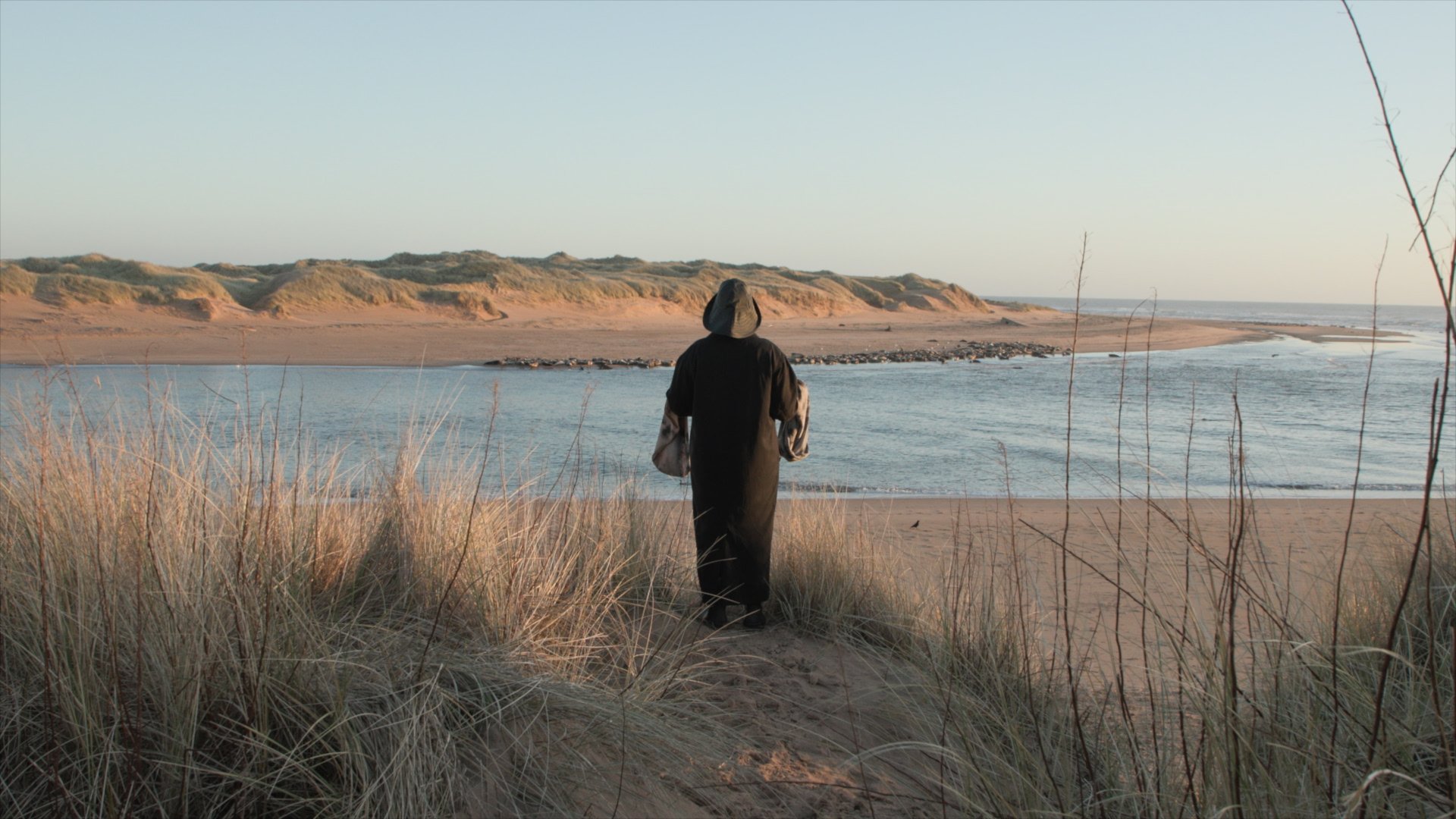
HANNA TUULIKKI
ABOUT THE ARTIST
Hanna Tuulikki is a British-Finnish artist, composer and performer based in Scotland. In her multi-faceted oeuvre, she explores landscape in its entanglement with folklore and relationships between human and other-than-human beings. At the heart of her works are the artist’s forays into modes of storytelling that transcend verbal realms. Sound, performance and embodied hybridity become ways of interspecies kinship, of exploring the spaces in between offering moments of encounter between different beings. This is also the context in which Hanna’s artistic practice provides the opportunity to explore energy and its ethics in art making: energy here is both embodied, and ephemeral, shared and contained, yet generated in community.
In 2006, Hanna graduated from the Glasgow School of Art’s Environmental Art department. Since then, her critically acclaimed work has been shown both nationally and internationally, with selected recent exhibitions including the Institute of Modern Art, Brisbane (2023), National Galleries of Scotland (2021-2023), Timespan (2022), the Biennale of Sydney (2022), and the Helsinki Biennial (2021) amongst many others. She has been shortlisted for the Max Mara Art Prize for Women (2020), was the finalist in the Arts Foundation Music for Change Award (2022), won a Scottish award for New Music in Sonic Arts (2017) and was twice shortlisted for a British Composer Award (2015, 2017).
ABOUT THE TALK
For the first of our artist/author conversations in part 3 of our series, Hanna Tuulikki was joined by ecofeminist writer Sophie Strand. Together, they explored “care, healing & regeneration” in the context of their works. Both share an interest in storytelling, folklore, and holistic approaches to ecological questions. In their literary and artistic practices they move beyond the conventional Western focus on human-centred narratives by exploring the potential of multi-species stories through embodiment and attentiveness. Building on that, their work encourages us to question how we relate to the world around us and be with rather than opposed to others, both human and other-than-human alike.
Hanna Tuulikki, Deer Dancer, composite film still, 2019
Hanna Tuulikki, Deer Dancer, live stream performance, 2021
Hanna Tuulikki, Seals-kin, 2022
Hanna Tuulikki, Seals-kin, 2022
Hanna Tuulikki, Under Forest Cover / Metsänpeiton Alla, 2021
Hanna Tuulikki, Under Forest Cover / Metsänpeiton Alla, 2021
Hanna Tuulikki, Echo in the Dark, Live performance, 2022. Photo credit Ben Douglas
Hanna Tuulikki, the bird that never flew, Live performance, Glasgow Cathedral, 2023. Photo credit Minttu Mäntynen.
Hanna Tuulikki, the bird that never flew, Live performance, Glasgow Cathedral, 2023. Photo credit Minttu Mäntynen.








